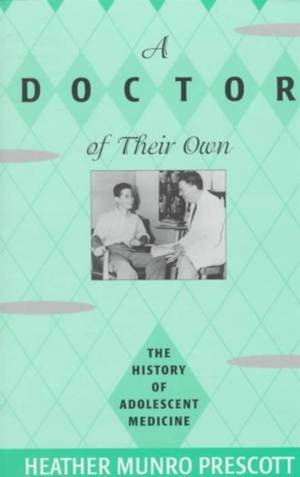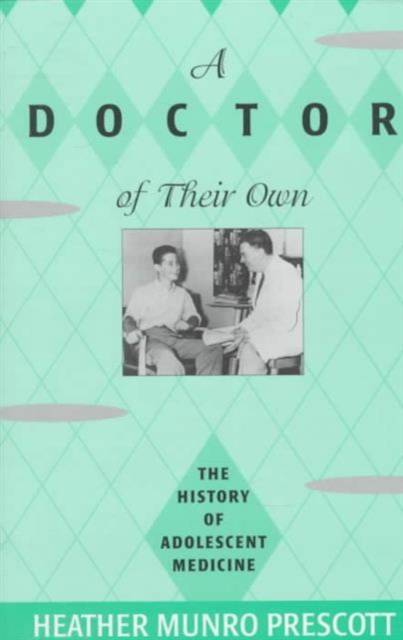
Door een staking bij bpost kan je online bestelling op dit moment iets langer onderweg zijn dan voorzien. Dringend iets nodig? Onze winkels ontvangen jou met open armen!
- Afhalen na 1 uur in een winkel met voorraad
- Gratis thuislevering in België vanaf € 30
- Ruim aanbod met 7 miljoen producten
Door een staking bij bpost kan je online bestelling op dit moment iets langer onderweg zijn dan voorzien. Dringend iets nodig? Onze winkels ontvangen jou met open armen!
- Afhalen na 1 uur in een winkel met voorraad
- Gratis thuislevering in België vanaf € 30
- Ruim aanbod met 7 miljoen producten
Zoeken
€ 130,95
+ 261 punten
Omschrijving
Parents have known since time immemorial, and social scientists have agreed since the turn of the century, that adolescents are a people unto themselves--a "distinct developmental category." Yet it was not until the 1950s that a medical specialty specifically for teenagers came into being. In this book, Heather Munro Prescott shows how the mid-twentieth-century emergence of adolescent medicine resulted from a combination of social changes that reached far beyond the field of medicine--changes that placed teenagers themselves at the center of the national agenda.
The first book to trace the history of adolescent medicine, A Doctor of Their Own draws on oral histories of physicians in the field, patient records from adolescent medical facilities, medical and popular advice literature, and letters from teenagers and their parents. Prescott examines the interplay between the emergence of adolescent medicine and changes in American family relationships, youth culture, popular perceptions about young people, and the social experience of adolescence. With special attention to the role of young people themselves in the shaping of this new discipline, her book follows the development of adolescent medicine from its origins in the work of J. Roswell Gallagher at Boston Children's Hospital in the 1950s to its uncertain prospects today, when, despite heightened recognition of their specific medical needs, most teenagers still receive inadequate health care.Specificaties
Betrokkenen
- Auteur(s):
- Uitgeverij:
Inhoud
- Aantal bladzijden:
- 256
- Taal:
- Engels
Eigenschappen
- Productcode (EAN):
- 9780674214613
- Verschijningsdatum:
- 25/10/1998
- Uitvoering:
- Hardcover
- Formaat:
- Genaaid
- Afmetingen:
- 162 mm x 242 mm
- Gewicht:
- 548 g

Alleen bij Standaard Boekhandel
+ 261 punten op je klantenkaart van Standaard Boekhandel
Beoordelingen
We publiceren alleen reviews die voldoen aan de voorwaarden voor reviews. Bekijk onze voorwaarden voor reviews.











